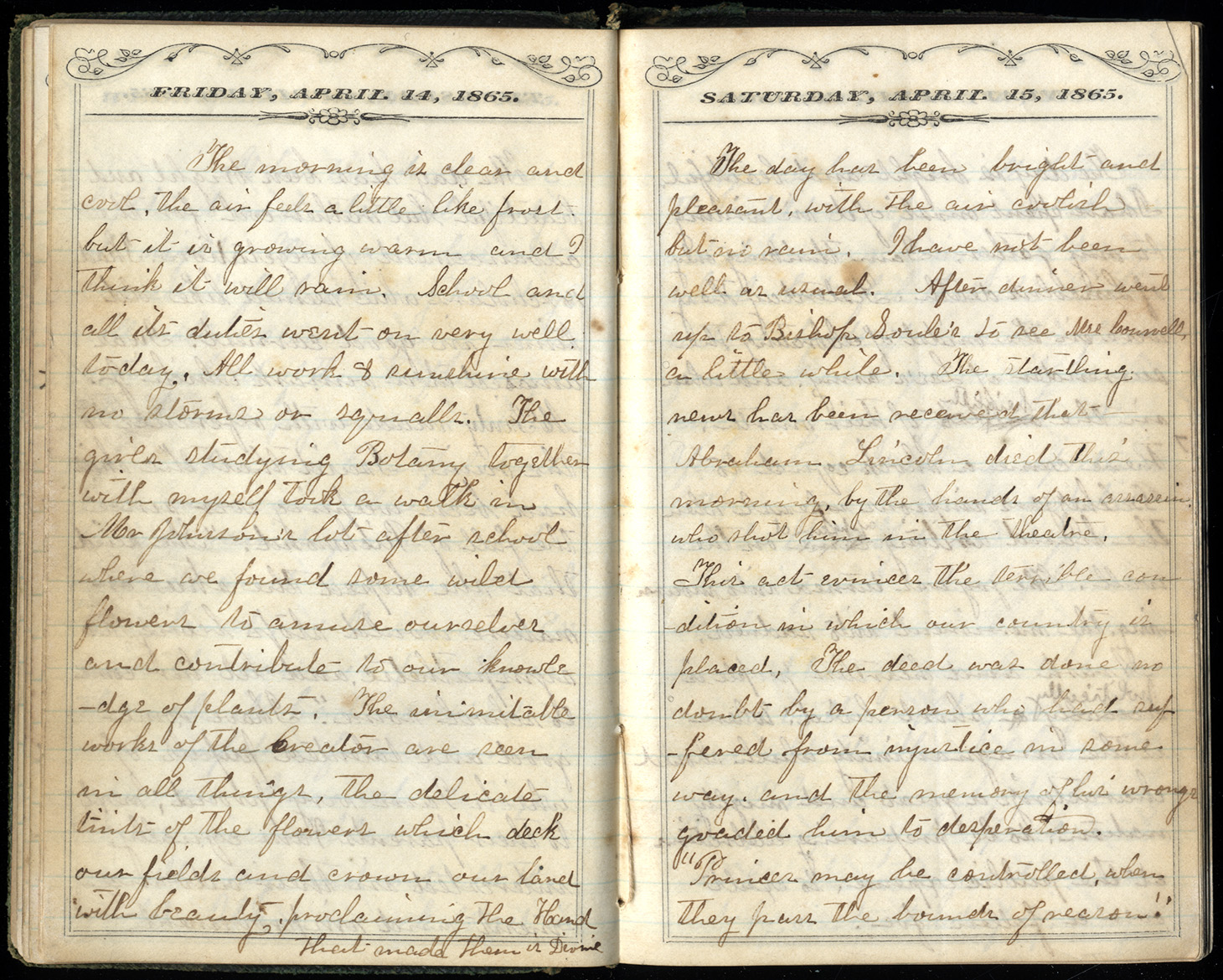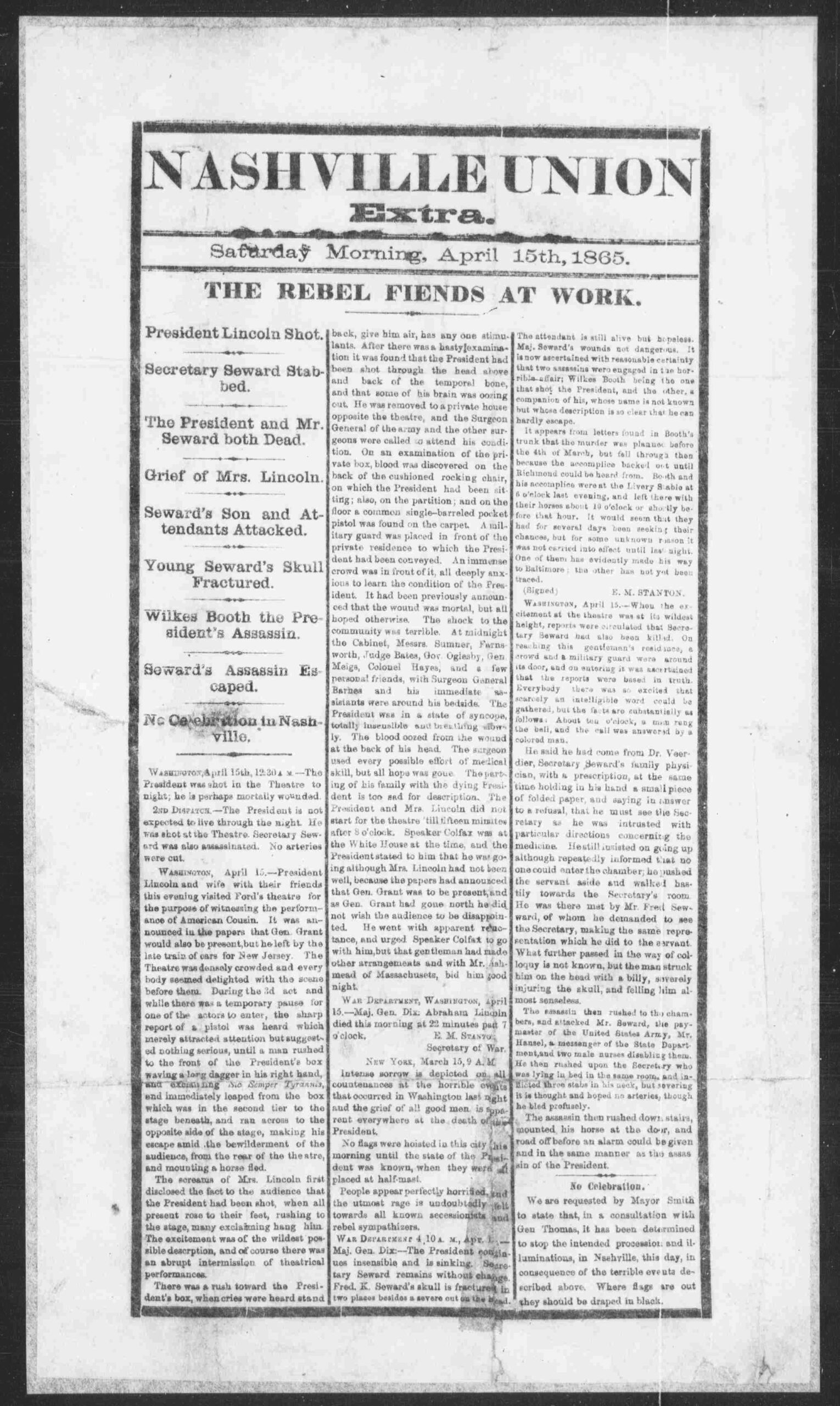
Digital History Activity: Historical Document Transcription and Research for Remembering Lincoln
During this unprecedented COVID-19 outbreak, many of us find ourselves at home. Whether you are a student, teacher or lifelong learner, Ford’s Theatre has ways you can digitally engage from home! The following projects will connect learners of all ages with historical primary sources via our award-winning Remembering Lincoln website.
Remembering Lincoln is essentially an online exhibition of personal reactions to the assassination of Abraham Lincoln from the time period. The digital collection currently includes more than 850 primary sources drawn from more than 40 libraries, archives, museums and private collections.

Teachers: If you’re looking to do these as structured lessons, click though for either transcription or primary source research.
Transcribing Remembering Lincoln Primary Sources
The primary sources on the Remembering Lincoln website are searchable by title, description and transcription—simply type in a word to the search bar and locate a related item.
Like many online archives, not all of the documents that are viewable on Remembering Lincoln are yet transcribed. Ford’s would love your help!

Here’s how you can contribute a transcription:
- Use this form as a template to type what you read in the document. Some may find it helpful to first use a separate word processing program, like Microsoft Word or Google Docs, to do the transcription, then copy and paste that text into the form.
- Transcribe handwritten documents. This is an exciting and sometimes challenging way to learn and practice reading cursive handwriting. In another browser tab or window, click here to look at handwritten materials.
- Transcribe printed documents. Even newspapers need to be transcribed. Skip the challenge of deciphering handwriting and click here for printed materials. In another browser tab or window, click here to look at printed materials.
- Do the transcription in the form (above) or, if using a separate word processing document first, copy and paste that text into the form.
- When you’ve completed the form, click “Submit.”
- Next, Ford’s staff will review the transcription and contact you when your transcription is live on Remembering Lincoln!

Adding Primary Sources
We want to expand the number of historical primary sources (especially those from April 15, 1865, to June 1, 1866) that are featured on our Remembering Lincoln website. You can help by contributing a newspaper article found on the Library of Congress and National Endowment for the Humanities combined website, Chronicling America.
Here’s how:
- Click here to go to Chronicling America.
- To find articles from the time frame for the collection, you can use the advanced search function.
- Click the “Advanced Search” tab.
- Set the Date Range to 4/15/1865 to 6/1/1866.
- Set other search parameters as you like—for example, you can search for articles from your home state.
- Pick your search term. A broad term like “Lincoln,” will bring up a lot of articles for you to search through. Or search a narrower set of terms, like “Lincoln assassination” or “Lincoln funeral,” to bring up specific articles. Your choice!
- Click “Search.” Go through your results.
- When you find an article you’re interested in submitting to us, check to see if it’s already on Remembering Lincoln:
- Go to the Browse Responses page on the Remembering Lincoln website.
- In the search bar, copy and paste a few words from the headline.
- Click “Search”
- If your article isn’t in on our website already, you’re good to go!
- To submit each article, fill out this form.
- Click “Submit”
Once you click “Submit,” our team will check over the source you submit and contact you when your article is live on Remembering Lincoln!
Questions? Please contact us at [email protected] as you have questions. We are here to help and appreciate your interest in helping make the Remembering Lincoln website more usable for everyone!
David McKenzie was Associate Director for Interpretive Resources. Before coming to Ford’s in 2013, he worked at the Jewish Historical Society of Greater Washington, The Design Minds, Inc. and at the Alamo.

